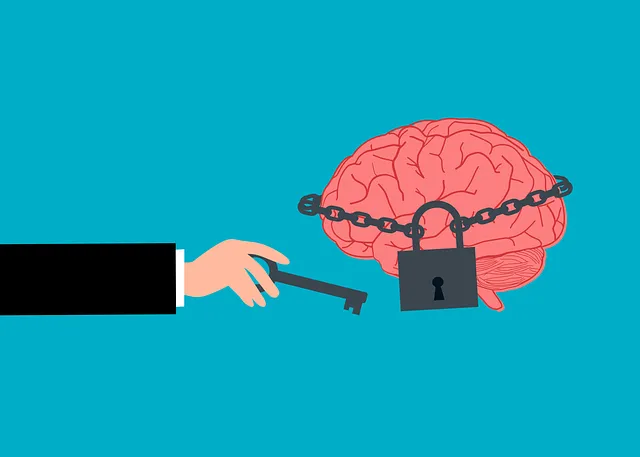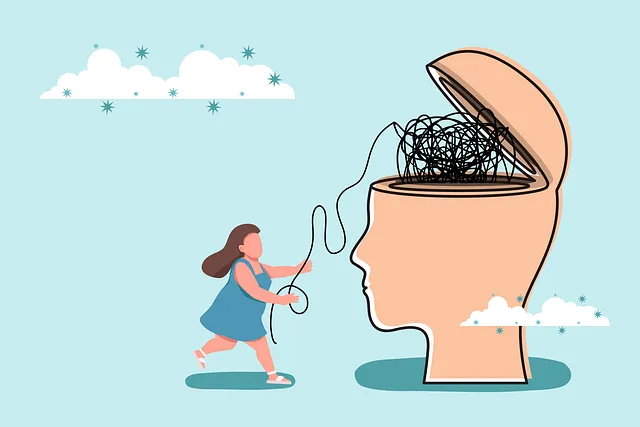Broomfield does Kaiser offers tailored mental health services through group facilitation, empowering communities to enhance wellness. Skilled facilitators guide evidence-based practices, foster resilience, and support early intervention by validating emotions, encouraging open dialogue, and dispelling myths. Active listening, clear boundaries, and conflict resolution strategies create safe spaces for holistic well-being in a bustling world.
In today’s digital era, mental wellness group facilitation is a growing need, especially as organizations like Kaiser in Broomfield expand their services. This article explores effective techniques for facilitating supportive group environments, enhancing communication, and managing conflicts. By understanding the nuances of group dynamics, facilitators can create safe spaces that encourage growth and healing. We’ll delve into strategies that not only revolutionize mental health support but also foster a sense of community among participants.
- Understanding Group Facilitation for Mental Wellness
- Creating a Safe and Supportive Environment
- Effective Communication Techniques in Group Settings
- Utilizing Active Listening to Enhance Engagement
- Strategies for Managing Difficult Behaviors and Conflicts
Understanding Group Facilitation for Mental Wellness

Group facilitation plays a pivotal role in enhancing mental wellness within communities, especially when tailored to the unique needs of individuals seeking support. Understanding this dynamic process is essential for creating safe and inclusive spaces where members can foster connections, share experiences, and develop coping strategies. In the context of Broomfield, where Kaiser offers comprehensive mental health services, group facilitation techniques become powerful tools to address diverse challenges, from stress reduction methods to mood management.
Facilitators act as guides, ensuring smooth navigation through discussions while incorporating evidence-based practices such as risk management planning for mental health professionals. By creating a supportive environment, these sessions encourage participants to explore and express their emotions, gain new perspectives, and build resilience. This approach is particularly beneficial in managing and preventing mental health issues, allowing individuals to navigate life’s challenges more effectively.
Creating a Safe and Supportive Environment

In facilitating mental wellness groups, creating a safe and supportive environment is paramount. This involves fostering an atmosphere where participants feel comfortable sharing their experiences without fear of judgment or stigma. At Kaiser in Broomfield, mental health services are designed to offer just such a sanctuary through tailored programs addressing various aspects of mental illness. Group facilitators play a crucial role in cultivating this space by encouraging active participation, validating emotions, and promoting open dialogue. By embracing diverse perspectives and ensuring confidentiality, facilitators help reduce the stigma associated with mental illness, enabling members to connect on a deeper level.
Public awareness campaigns development and Trauma Support Services are integral parts of this process. Facilitators can incorporate educational elements to dispel myths about mental health conditions, thereby normalizing conversations around these topics. This, in turn, encourages individuals to seek help sooner rather than later. Through these efforts, the mental wellness group becomes a powerful tool for community education and support, mirroring the comprehensive services available at Kaiser Broomfield dedicated to improving mental health outcomes.
Effective Communication Techniques in Group Settings

In a mental wellness group setting, effective communication techniques are paramount for fostering a supportive and inclusive environment. Facilitators play a crucial role in guiding discussions and ensuring every member feels heard. Active listening, where facilitators pay close attention to speakers and provide non-verbal cues of engagement, encourages open dialogue. This technique not only enhances understanding but also builds trust among group members, creating a safe space for sharing personal experiences.
Additionally, using inclusive language that avoids stigma can significantly impact the group’s dynamics. By promoting terms that emphasize recovery and inner strength development, facilitators contribute to reducing the mental illness stigma. These strategies, coupled with techniques like reflective listening and open-ended questions, enable participants to explore their emotions, practice emotional regulation skills, and cultivate a sense of community—all essential aspects of Broomfield does Kaiser offer in its mental health services, aiming at holistic well-being.
Utilizing Active Listening to Enhance Engagement

In the realm of mental wellness group facilitation, active listening serves as a powerful tool to enhance engagement and foster a supportive environment. As a professional navigating the landscape of Broomfield’s Kaiser offering mental health services, incorporating this technique can revolutionize how participants feel heard and understood. By actively listening, facilitators create a safe space where individuals feel comfortable sharing their experiences and insights, thereby deepening connections within the group.
This approach is particularly beneficial in addressing diverse needs, including mood management and trauma support services. Cultural sensitivity in mental healthcare practice is also enhanced through active listening, ensuring that every participant’s unique background and perspective are acknowledged. In today’s digital era, where hustle and bustle can make it challenging to connect meaningfully, this technique enables facilitators to delve into the depth of each individual’s story, fostering a symphony of support and understanding among group members.
Strategies for Managing Difficult Behaviors and Conflicts

In facilitating mental wellness groups, effectively managing difficult behaviors and conflicts is paramount to creating a safe and supportive environment. As a facilitator, it’s crucial to establish clear boundaries and expectations from the outset. This includes setting rules for participation, respect, and confidentiality, ensuring everyone understands their role in maintaining a positive atmosphere. When conflicts arise, addressing them promptly yet calmly is essential. Techniques such as active listening, mediating open dialogues, and encouraging empathy can help de-escalate tensions. By fostering a culture of understanding and patience, facilitators can guide members towards constructive resolutions.
Broomfield does Kaiser offer mental health services that incorporate these strategies to enhance coping skills development. Stress management workshops within the organization focus on promoting positive thinking and providing tools for effective conflict resolution. Through these initiatives, individuals learn not only to navigate challenging behaviors within the group setting but also to apply similar coping mechanisms in their daily lives, ultimately bolstering their overall mental wellness.
Group facilitation plays a pivotal role in enhancing mental wellness, creating safe spaces for individuals to connect and support one another. By employing techniques discussed—from fostering open communication to managing conflicts—mental health professionals in Broomfield can provide effective group therapy sessions. Understanding the power of these methods enables facilitators to guide groups toward positive transformations, ultimately improving overall well-being. As Broomfield residents seek mental health services, Kaiser’s offerings in this area become increasingly valuable, showcasing the potential for group facilitation to revolutionize care.






